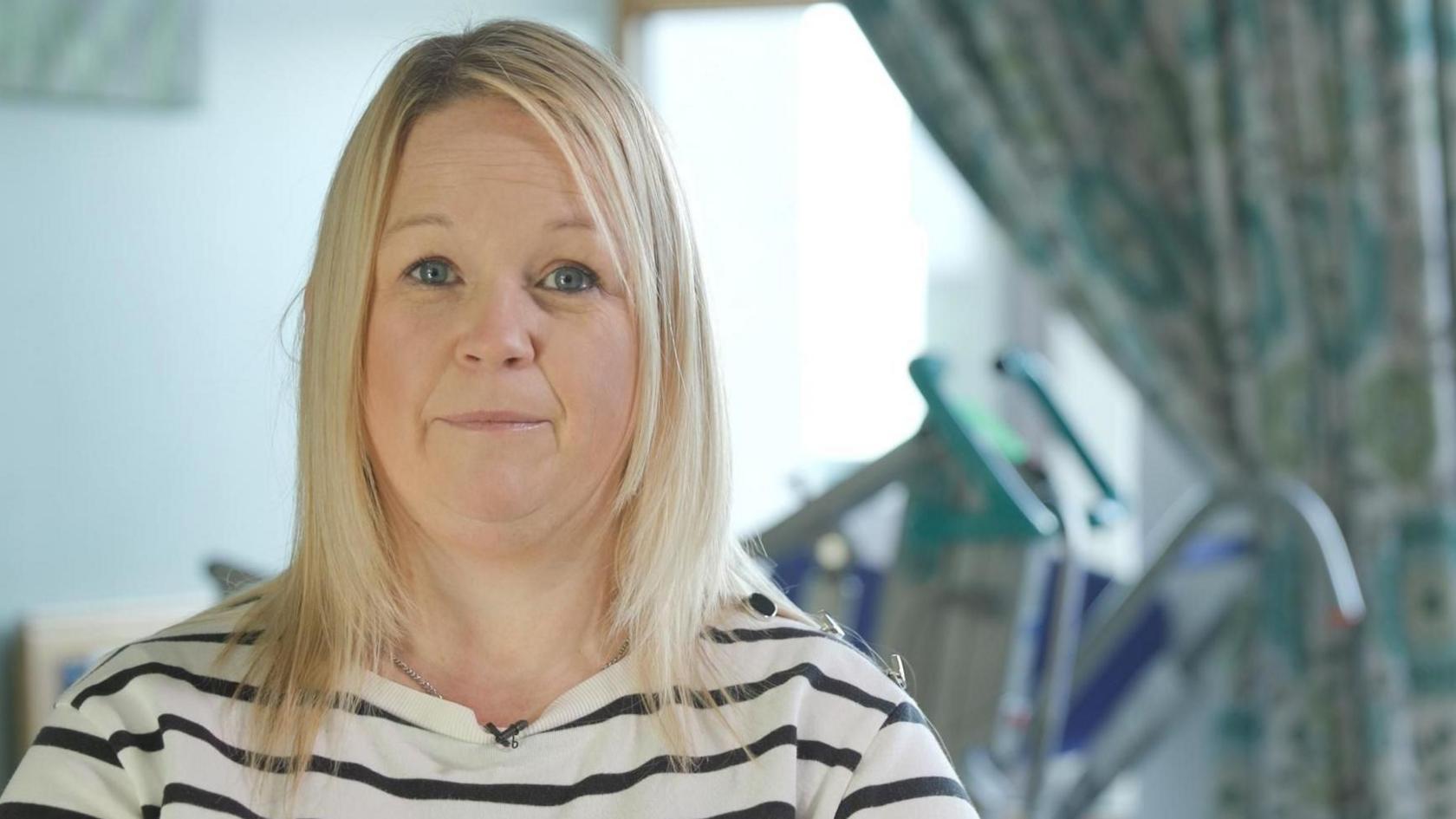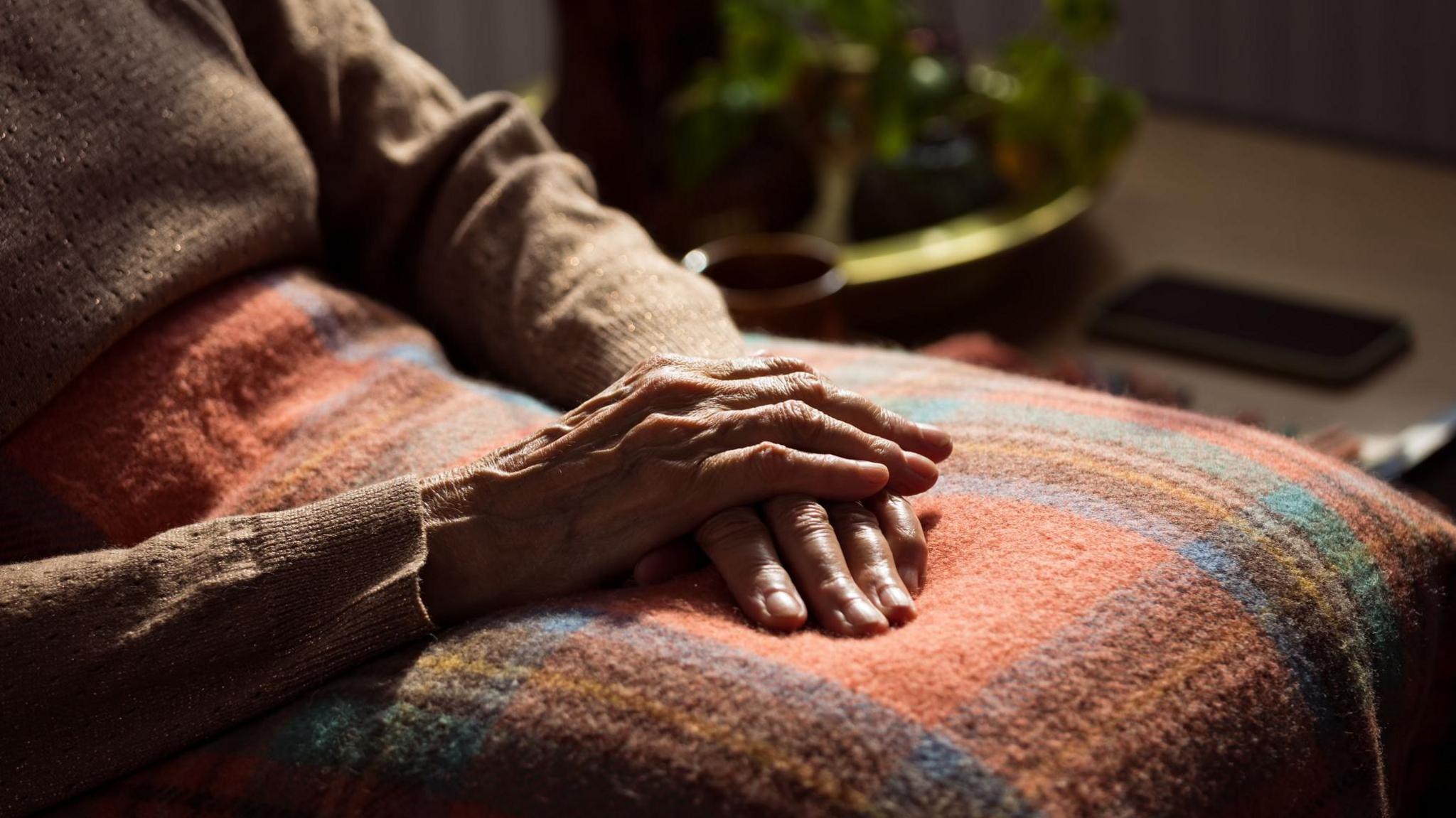Care home nurse suspended after attempt to cover up errors

Mercy Amoabeng was found to have committed a number of errors at Oakbridge care home
- Published
A nurse has been suspended after attempting to cover up several failings at a Glasgow care home.
Mercy Amoabeng was found to have committed a number of errors in May 2021 while working at Oakbridge Care Home in the city's Knightswood area.
The mistakes included locking a resident in their room for up to half an hour, not correctly assessing another resident following a fall, and trying to get two colleagues to give a "misleading impression" about events.
The Nursing and Midwifery Council heard Mrs Amoabeng was suffering difficult personal circumstances at the time, and has no other incidents on her record during a near 30-year career.
However the regulator ruled, external that her "dishonesty was not at the lower end of the scale and was extremely serious."
The three person panel added that her decisions "brought the profession into serious disrepute by your departure from the fundamental tenets" of the profession.
Resident 'in pain and discomfort'
While working the nightshift on 15 May 2021, Mrs Amoabeng was found to have locked a resident in their bedroom for up to 30 minutes, as well as locking other residents in their rooms.
This created a "significant risk of potential harm" to the first resident in particular, who was left in an agitated state.
She accepted these charges, as well as one that stated she later moved another resident without using a hoist after they fell and suffered a potential fracture - a decision the panel ruled was "not wholly unexpected".
Mrs Amoabeng disputed charges that she advised the resident should be left and regular checks should be conducted, and that any decision on whether to call an ambulance be left to the day shift when they arrived for work.
However, these charges were proved by the regulator, which found the resident was agitated "because of the pain and discomfort they were experiencing" after the fall, and that an ambulance should have been called immediately.
It was only when a care assistant challenged Mrs Amoabeng's decision that an ambulance was called.
'Very serious issues of dishonesty'
Following the fall, she was found to have asked two colleagues on multiple occasions to say the resident had been able to walk to bed.
This was found to have "left a profound impact" on two witnesses, who were shocked. Mrs Amoabeng denied this charge but the panel ruled she had committed dishonest actions to create a "misleading impression" of the incident.
It stated these were "very serious issues of dishonesty" and her actions "did fall seriously short of the conduct and standards expected of a nurse."
The panel ruled: "While there is no evidence of actual harm being caused there was a significant risk of unwarranted harm to residents.
"Your misconduct had breached the fundamental tenets of the nursing profession and therefore brought its reputation into disrepute."
However the regulator ruled the "clinical failings" - meaning the locked room and patient assessment charges - were unlikely to be repeated and that Mrs Amoabeng's most recent manager believed she was "kind, safe, and effective."
It found there was a risk of repetition regarding dishonesty, and that her fitness to practice was impaired as a result.
The panel decided to impose a suspension order for six months with a review, with a interim suspension order of 18 months in place to cover any appeal period.
If no appeal is made the interim suspension order will be replaced by the substantive suspension order 28 days after Mrs Amoabeng receives the hearing decision in writing.
Related topics
- Published12 March

- Published20 May

